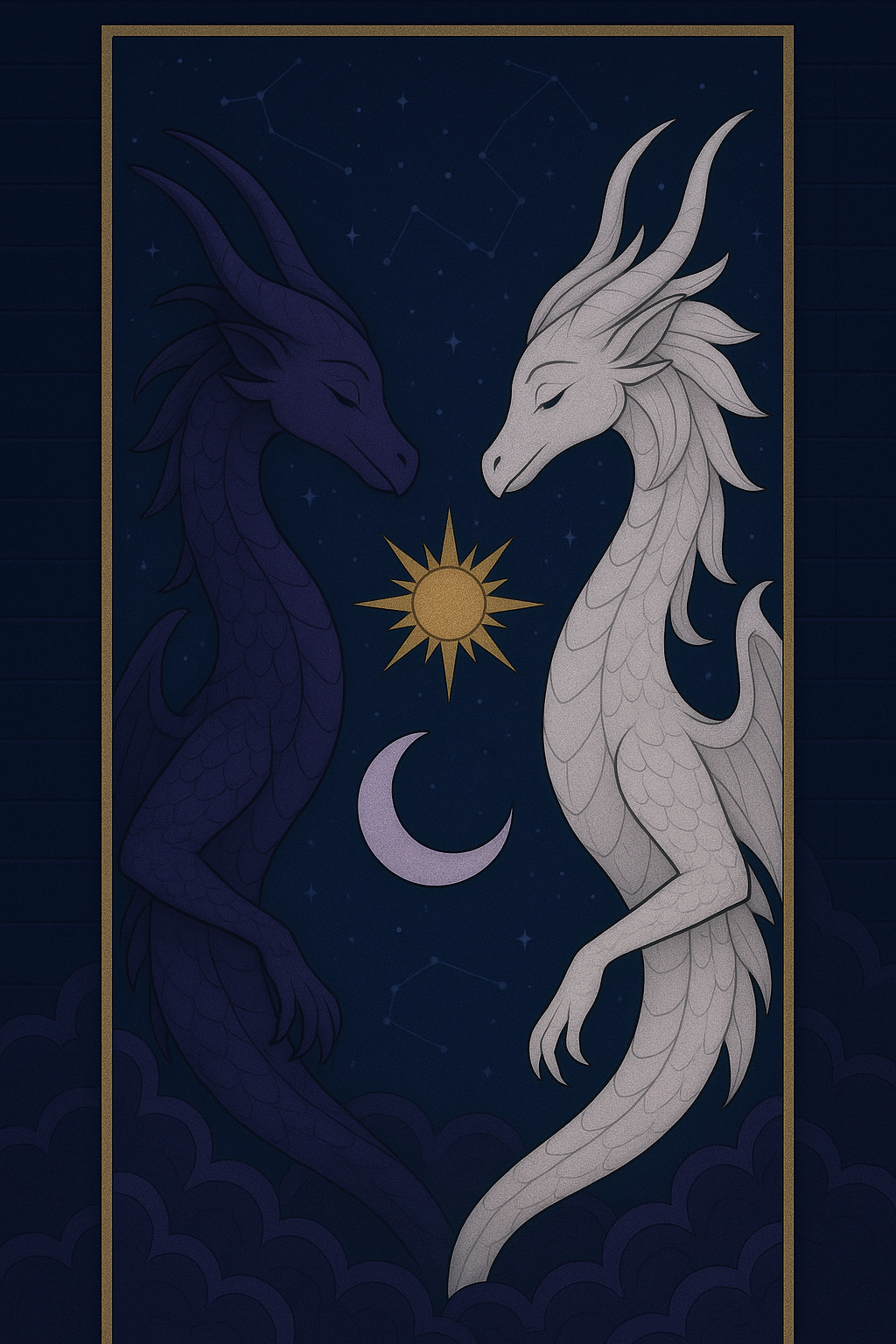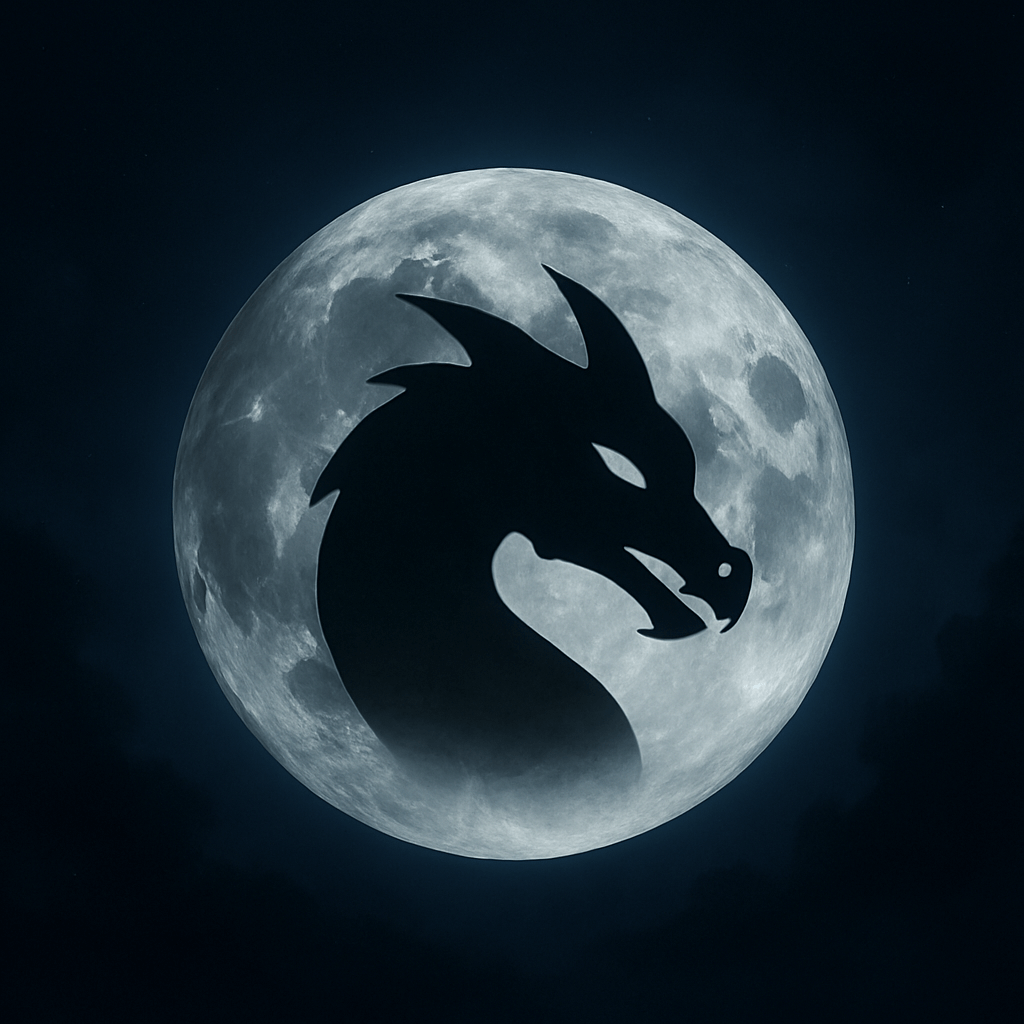On the Sundering of Certainty
As set forth by Lysander of the Ember Veil
When dawn rose after the Flame-Seer's visitation, it was not to the triumph the Imperium elders had long foretold. Instead, a hush fell across the basalt halls, as if even the stones withheld their praise.
Some among the priesthood proclaimed that Verdessa had shown favor by allowing the stranger to depart unharmed. Others whispered that Her silence was a judgment—that She would no longer abide the pride of those who clung too tightly to their own glory.
By evefall, the schism had begun. A few brave souls—priests and layfolk alike—spoke openly that perhaps Caelus had brought a truth long ignored: that mercy, not dominion, was the flame most needed in the hearts of mortals. They were branded heretics and cast from the Ember Hall.
And so it was, on the second night, that Nya’gothia made Herself known beyond doubt. Witnesses speak of a shape vast as a midnight storm—a serpent-dragon woven of silver flame and violet shadow, unfurling above the ash-pyres where the exiles huddled. Her eyes, twin lanterns of sorrow, swept across the city that had so long forgotten Her.
And She spoke, Her voice like distant thunder and weeping rain:
“When your need is greatest, and the sun gives no answer,
remember that you turned away from Me.”
In that moment, the air grew so cold that frost bloomed across the black stones. The sky darkened. The stars withdrew. The rhythm of the world—so long held in perfect measure—stalled.
Then, just as despair gripped the hearts of all who watched, another brilliance tore through the night.
Verdessa descended. Not in the gentle guise of a crowned woman, but in Her true and terrible majesty: a great serpent-drake of golden fire, wings spread like dawn itself, crowned in burning solar flare.
The two sisters faced one another above the broken city—light and shadow, grief and flame.
But no battle was joined. Not yet.
Verdessa spoke first. Her voice cracked the clouds and trembled the earth—not with fury, but pleading:
“Sister. This path leads only to ruin.
You ache, and I ache with you. But the world cannot bear our grief.
Let me share this burden.
Let us mend what pride has broken.”
But Nya’gothia did not yield. Her form coiled higher, and the sky wept shooting stars. Her sorrow had festered too long, her silence too long endured.
“You had their songs.
I had their fear.
I stood beside you, and still they turned away.”
The wind stilled. For one terrible breath, time itself held its tongue.
Then the sky broke.
Light and shadow collided. Fire and frost ripped through the firmament. Day bled into night. The sun and moon danced wildly across the heavens, chasing and devouring each other. Crops withered in an instant. Children woke screaming. The tides crashed backward.
And below it all, Caelus knelt. The prophet of the One Flame, who had believed all gods were masks, saw divinity unmasked—and wept. His hands trembled. His voice failed.
“This is not a parable.
This is not mercy.
This is too much.”
Some say he broke. Others say he saw too clearly.
At the height of it, Verdessa rose again—rising higher than the storm of Her sister’s grief—and screamed. Not in rage, but in mourning.
And then she struck.
Not to destroy—but to end it.
With one final surge of golden flame, Verdessa wrapped her coils around Nya’gothia and drove them both upward—beyond the air, beyond the stars.
When the light returned, Verdessa alone remained, circling high in solemn silence. And above the moon, a new shadow was etched—a great serpent, wings folded, head bowed in eternal silence.
Nya’gothia was gone.
Whether exiled, bound, or self-imprisoned, none can say. Only that from that day forth, Her voice fell silent.
And so it was that Verdessa took the burden of both sisters. She commands the sun, and now guides the moon. She gives light, and guards the hush. But her warmth has grown colder since that night. Her fire more distant. Her glory tinged always with grief.
The Imperium did not sing at dawn.
And Caelus, the Flame-Seer, did not weep. He laughed.
Not with joy, but with the rapture of a man undone—one who had preached of absence and now stood before a goddess of unbearable presence.
“So you are real,” he whispered. “Not an echo. Not a symbol. Not a dream—a queen of night made flesh.”
His eyes blazed like a convert’s.
“I sought the Flame Beyond Form... but it is you who answered. You who burned the sky to prove yourself.”
“Verdessa pleads. But you... you punish. You remind them what it is to be forgotten.”
And that moment, I feared we had not seen the end of him—but only the beginning.
As for me, I write these final lines with hands scorched by truth.
Of all the wonders I have beheld, none have left me so hollow as this:
That in the hour her heart broke, Nya’gothia stood among us, veiled and silent, and we turned away.








